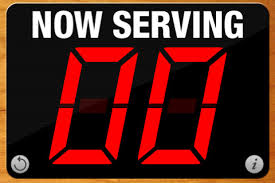In terms of any other sectors, market competition in perfect markets can often drive down prices and drive up quality.
Prof Michael Porter, one of the heads of department at Harvard, at the Harvard Business School, talks about ‘five forces of competition’, which is close to being taught on every single MBA course in the world.
The ‘Keogh trusts’, demonstrated to be working extremely poorly under the watch of the current Government and their Secretary of State, all have one thing in common. They all demonstrated dangerous levels of understaffing. In fact, the solution has been to remedy these inadequate levels.
Jeremy Hunt has been steadfast in his refusal to implement a minimum level of staffing, preferring to talk of ‘safe staffing’ levels instead.
And yet junior nurses in the National Health Service often remark that their aspirational ‘6Cs’, which include ‘compassion’ so beloved of this current government, are undermined by unsafe staffing.
Even in the private sector in a checkout till on McDonalds, assistants are unable to cope with the demand to buy BigMacs if there is an insufficient number of colleagues. The inconvenience of having queues for Big Macs is one thing. An inability of clinical staff to work safely, putting patients at risk, is another thing.
It is of course unPC to blame the private sector, but NHS Foundation Trusts who have to make regular loan repayments as a major part of their budget may feel that they can get away with understaffing.
They invariably can’t, even if their CEOs move onto different jobs within an average timescale of two to three years.
The pervasive undercurrent in such arguments is that there should be an ideological ‘parity’ between the public and private sector.
And yet public concern at campaigners remain exasperated about private providers, who can fail to be transparent and who can fail to disclose their staffing figures, can hide under the ‘commercial confidentiality’ cloak in freedom of information requests. Jeremy Hunt, on behalf of the coalition, has stubbornly refused to legislate for this aspect of parity.
The competition argument for the National Health Service has always ignored the traditional powerful arguments of Porter’s ‘five forces’.
They include supplier power, in that the NHS being such a large organisation is able, theoretically, to benefit from ‘economies of scale’ (in a way, bulk buying).
It is not a real market, in that a patient is not a ‘real customer’ wanting to shop around. He (or she) wants simply to go to his most local hospital for an acute life-saving treatment, not go half way up the M1 to the hospital with the best coffee shop and Wifi.
And if the private sector were so confident about their brand, why do they prefer to use the NHS brand?
Would it be puerile to suggest that chronic underfunding of the NHS, sold in the media and by the thinktanks as ‘unsustainable’, could lead the NHS brand to be so tarnished that private sector operators like knights in shining armour might one day feel confident to show their brand for a desperate public?
Sean Worth may call our arguments puerile, but a lack of rigorous implementation of practitioner models of competition in the private sector, derived from the giant automobile sector in the US, coupled with an inability to mention the root cause of unsafe operational issues in the NHS, is far more dangerous argument to run.
The transfer of resources from the NHS to the private sector, also known as “privatisation”, is directly legislated for in section 75 Health and Social Care Act (2012).
This ‘top down reorganisation’, which David Cameron said would never happen, has so far cost about £3bn so far.
And the most disingenious aspect of the argument is perhaps in this argument arguing for private provision and performance in the NHS is that the Act of parliament, all 493 pages of it, does not contain a single clause on patient safety, apart from one abolishing the National Patient Safety Agency.
But many of us agree, on the left, Sean is a very pleasant man.



Pingback: It is puerile, in fact dangerous, to suggest th...()